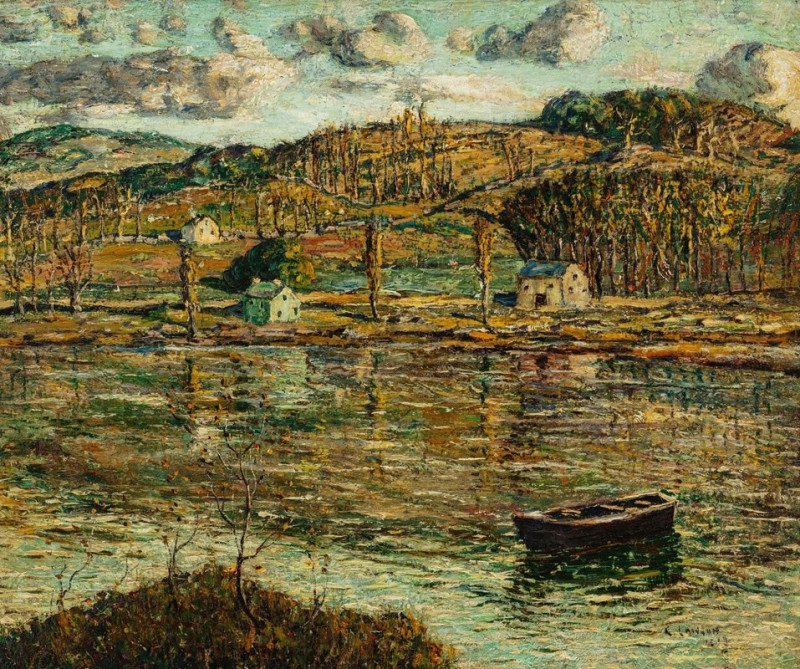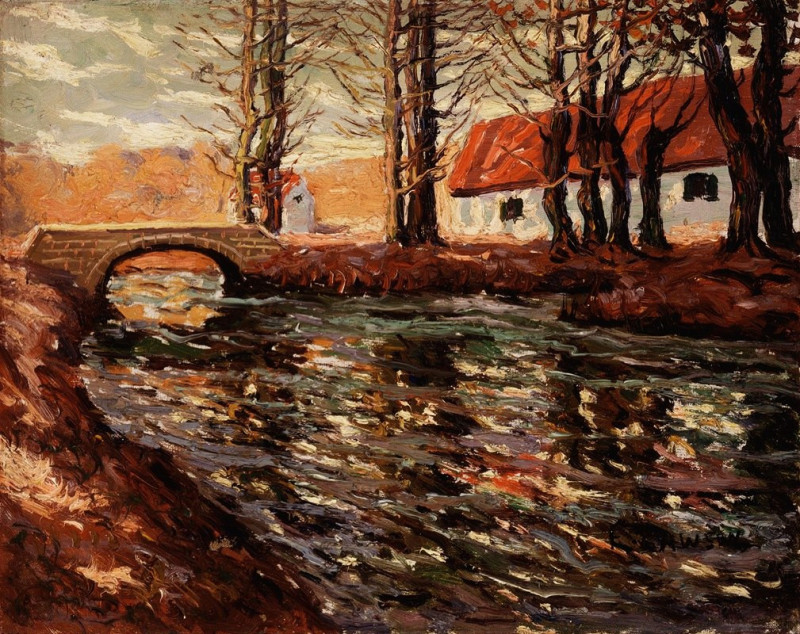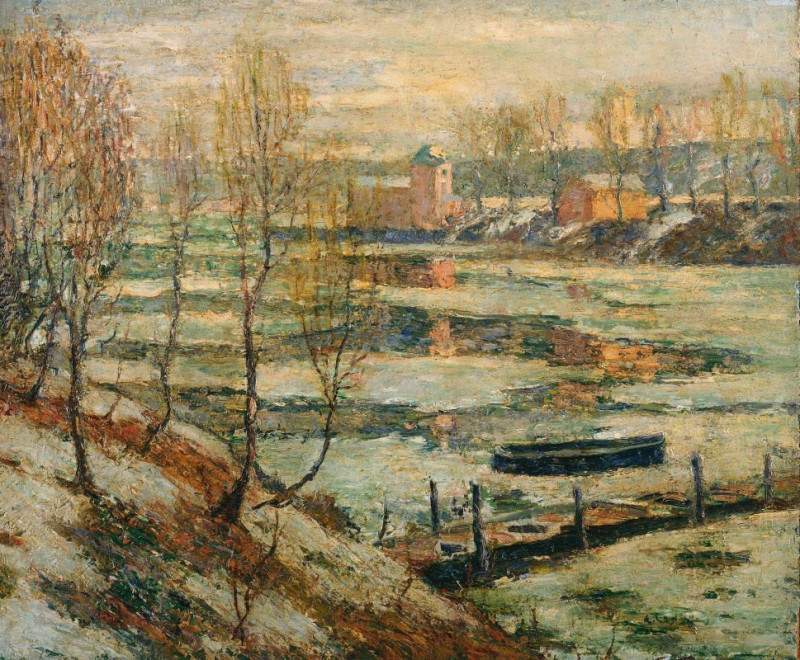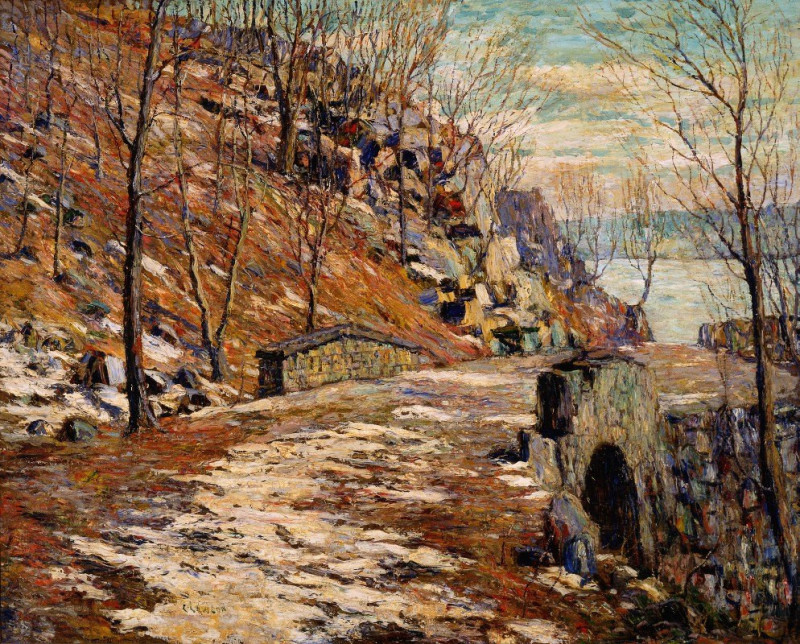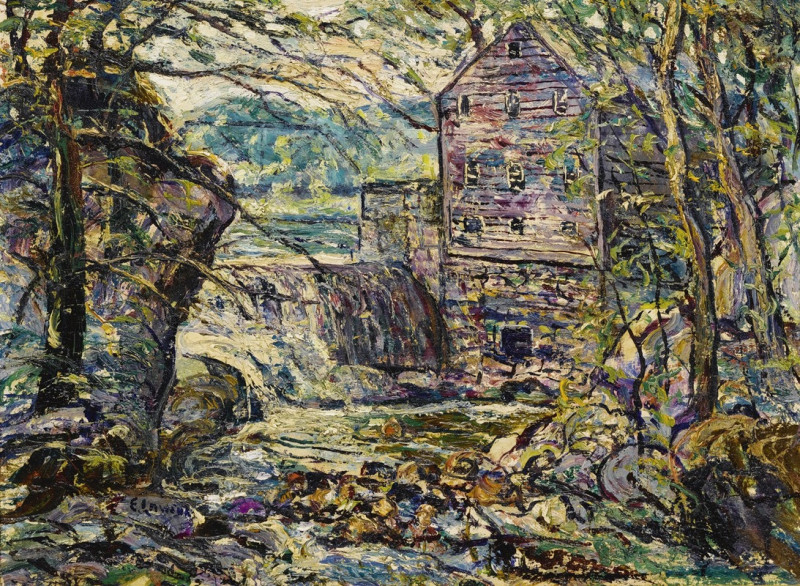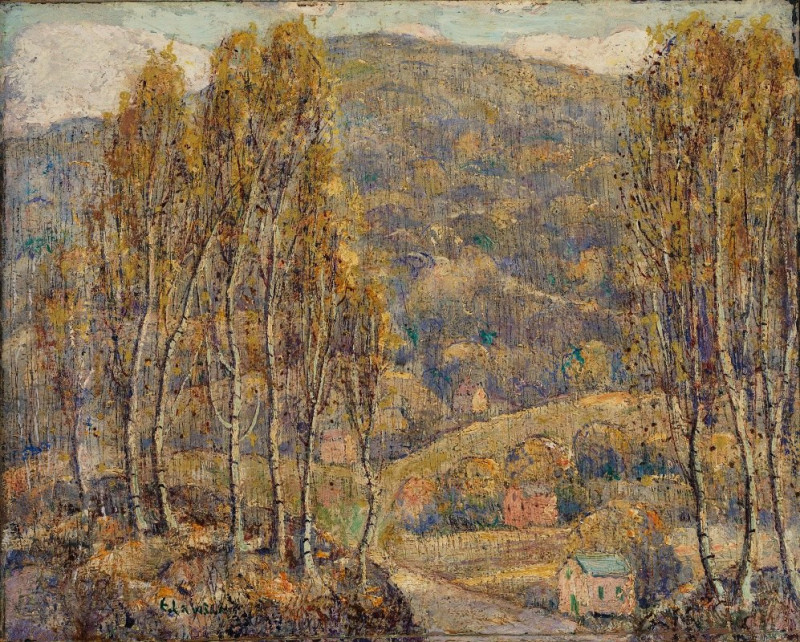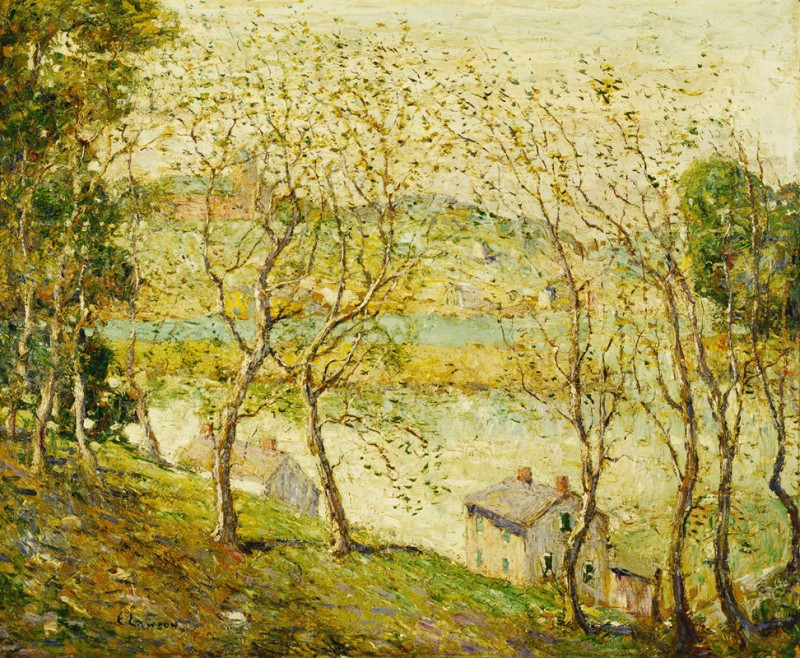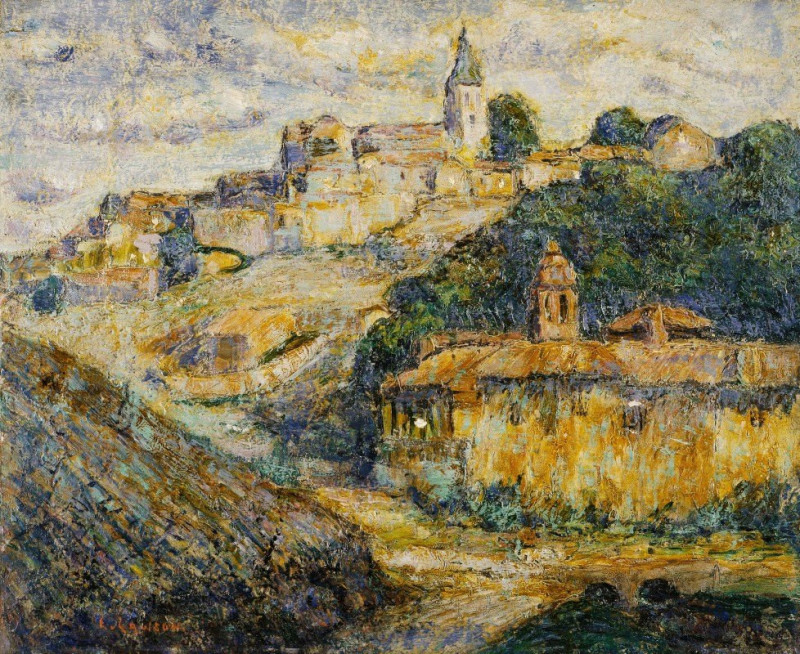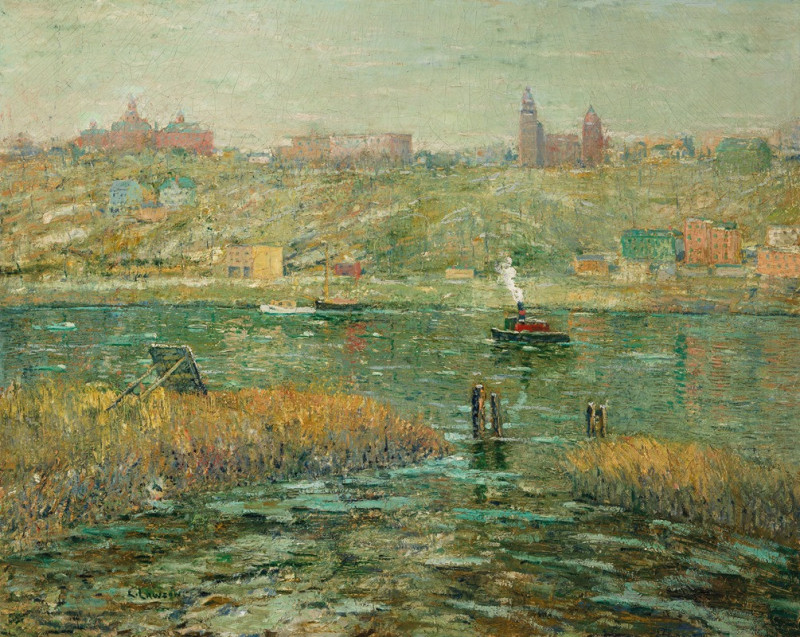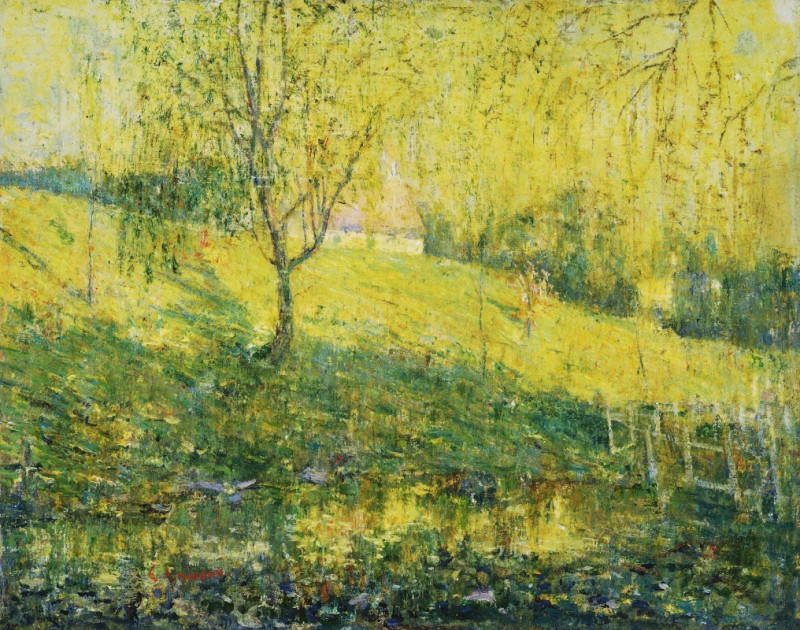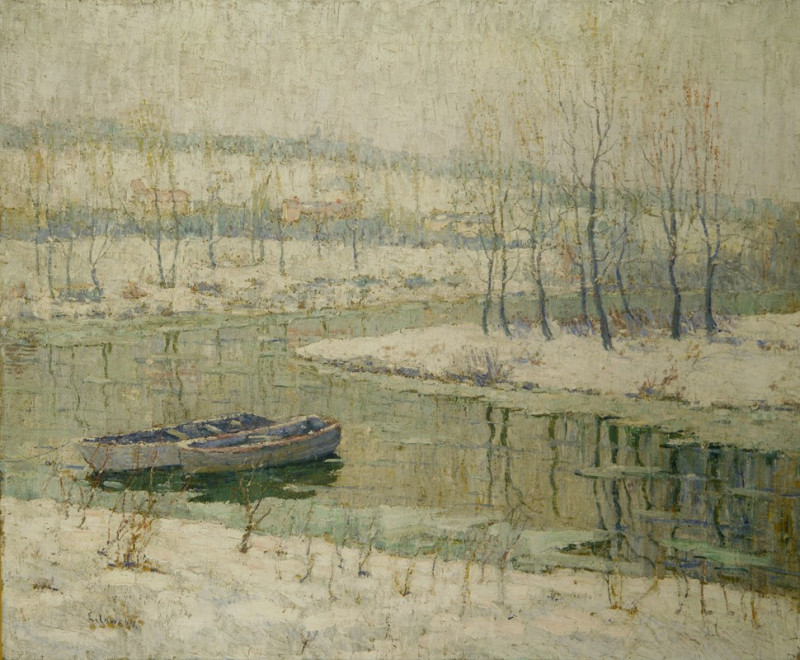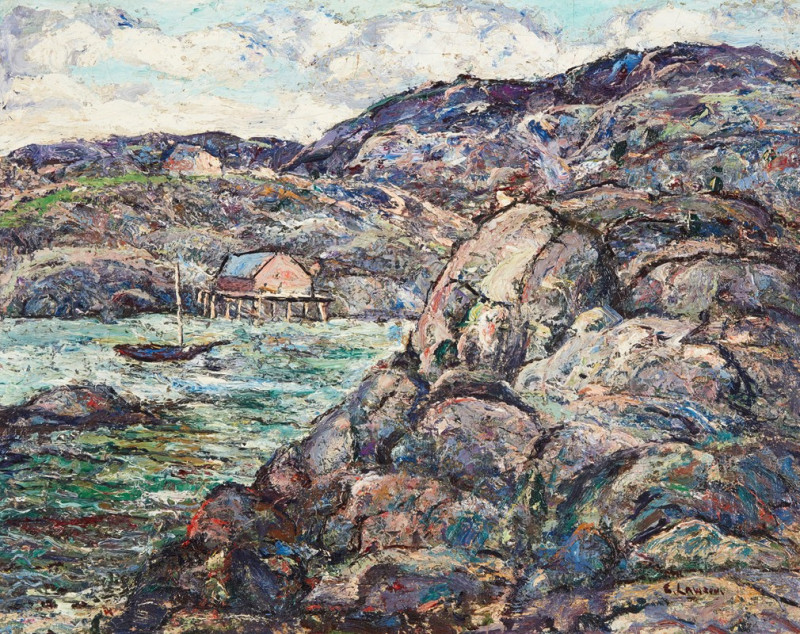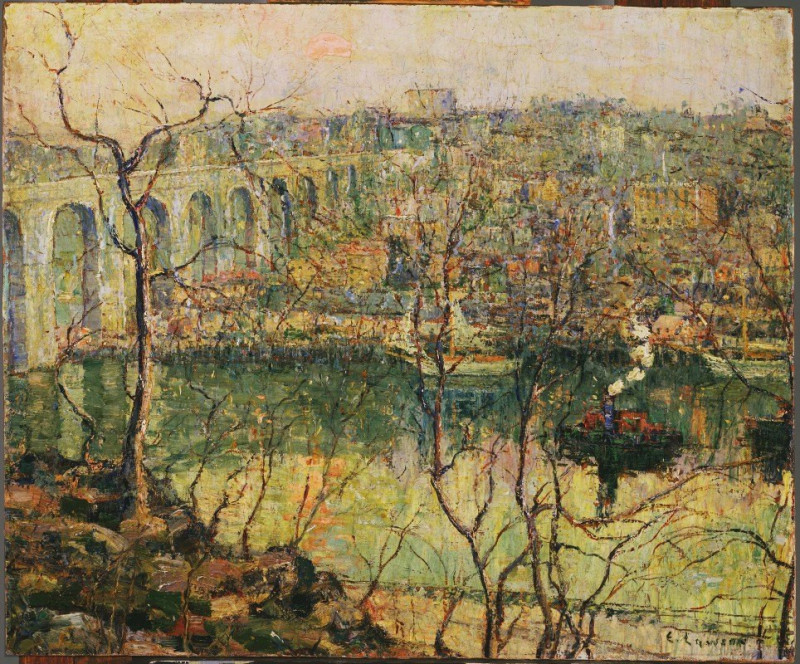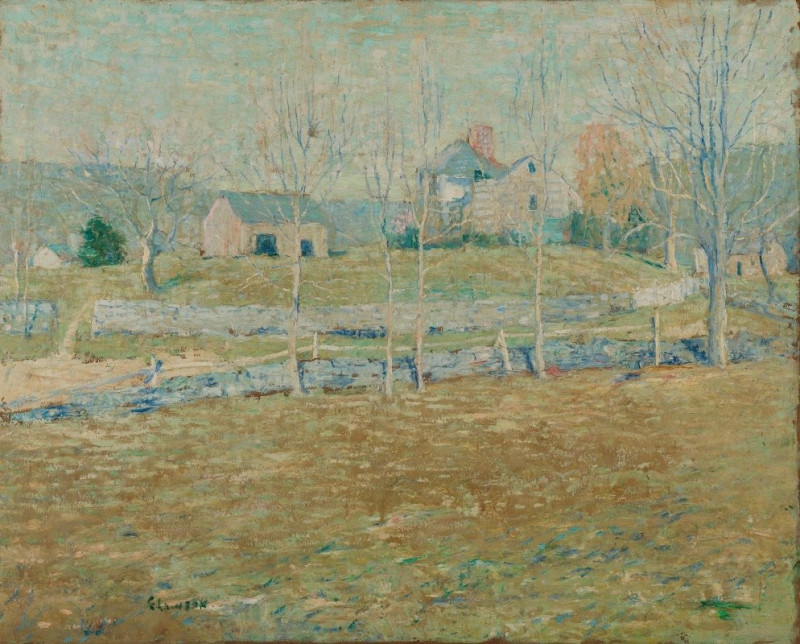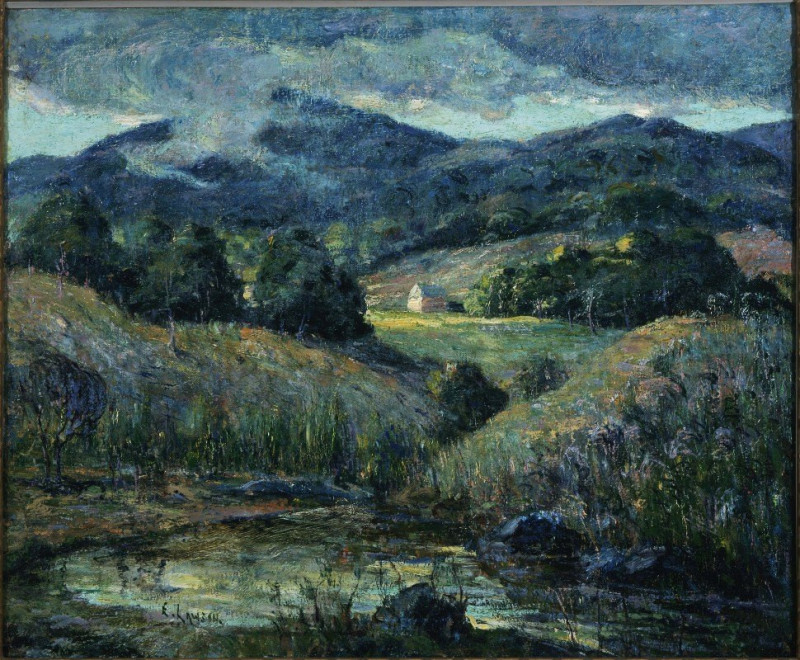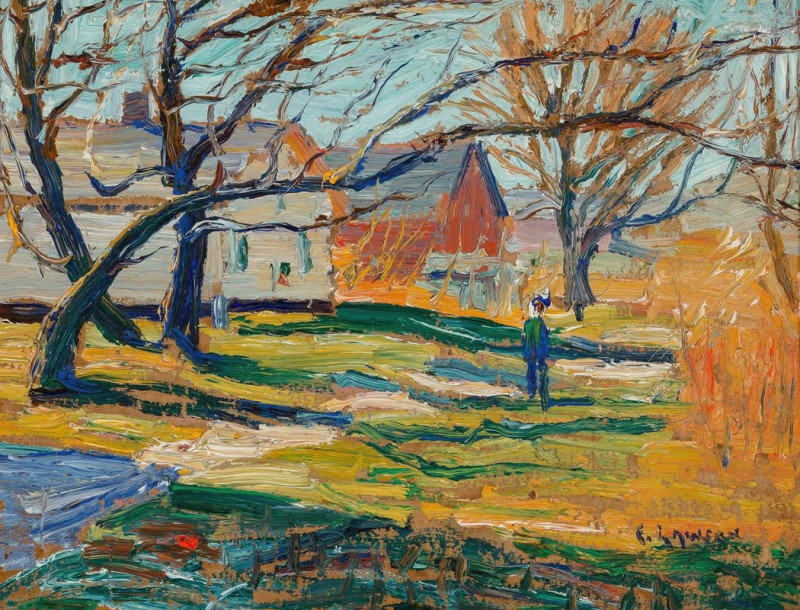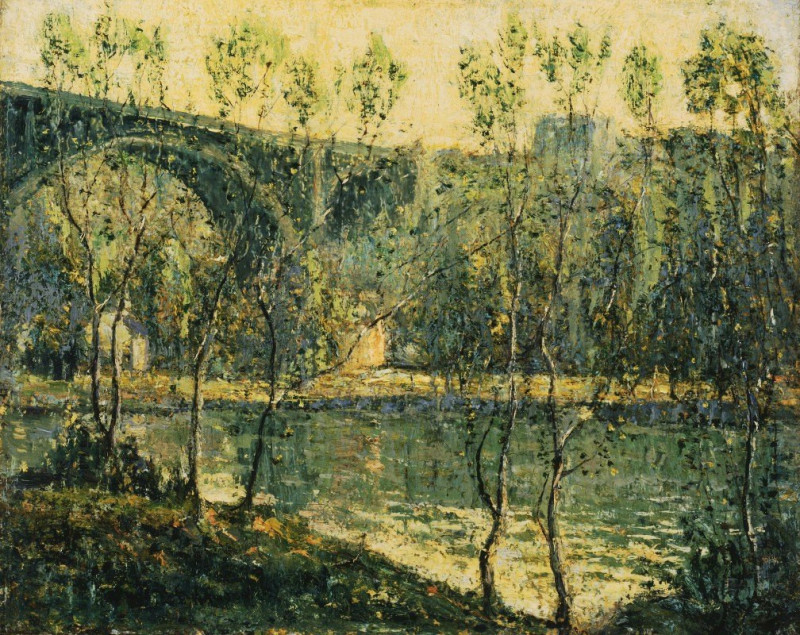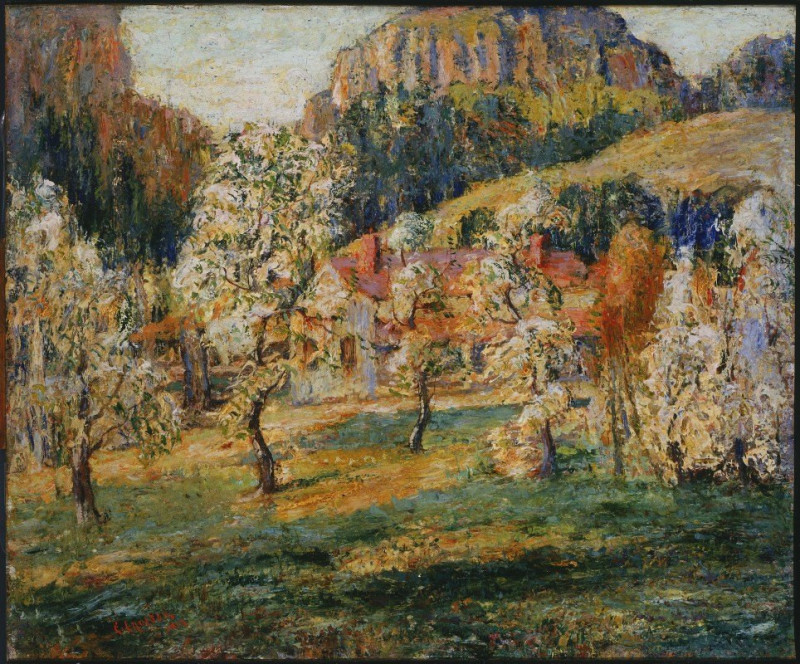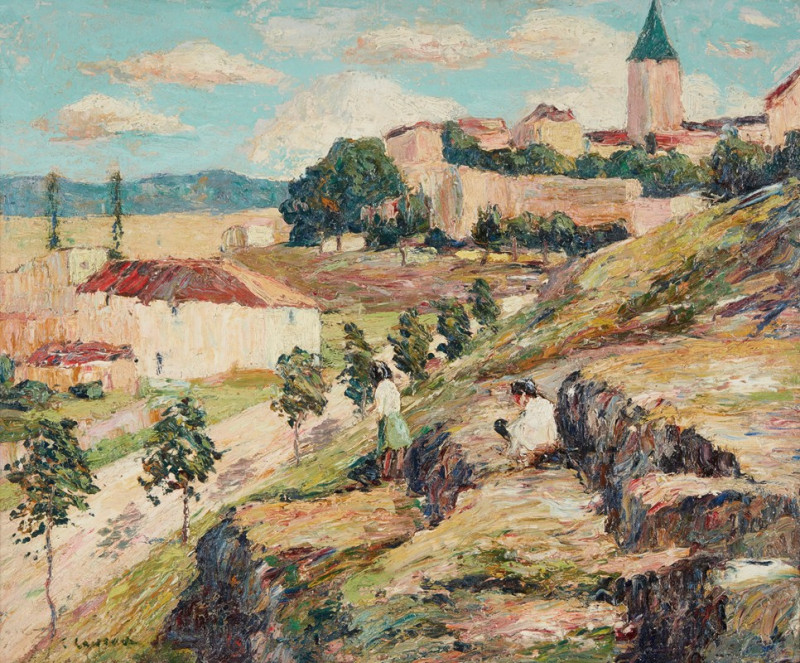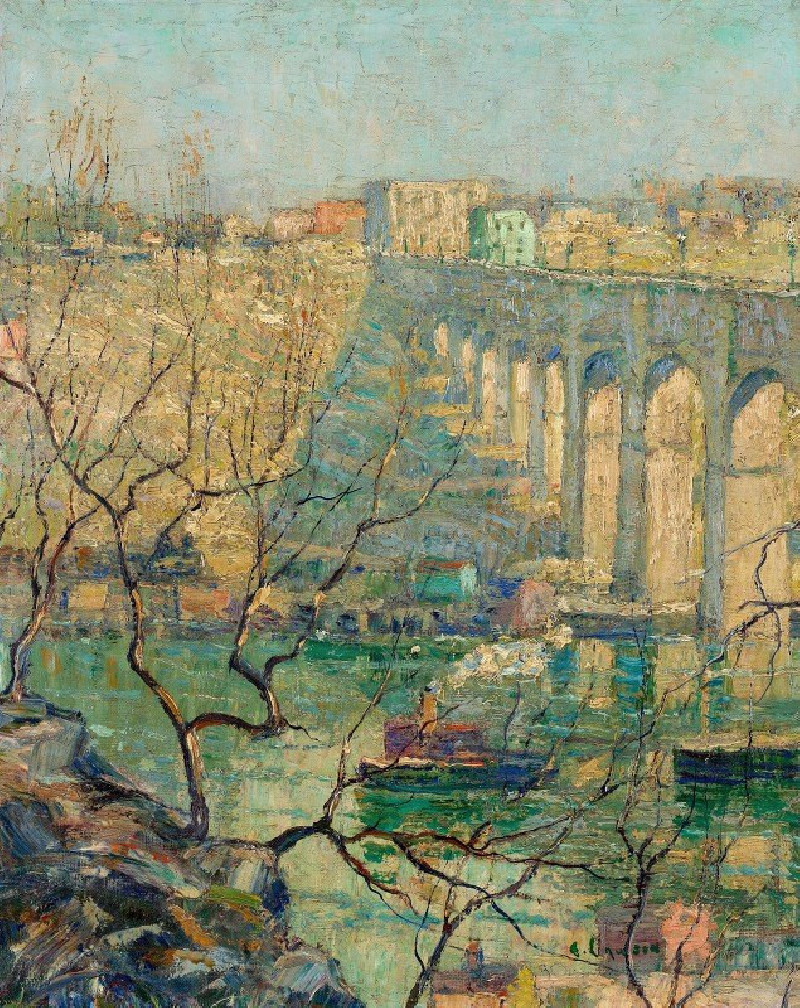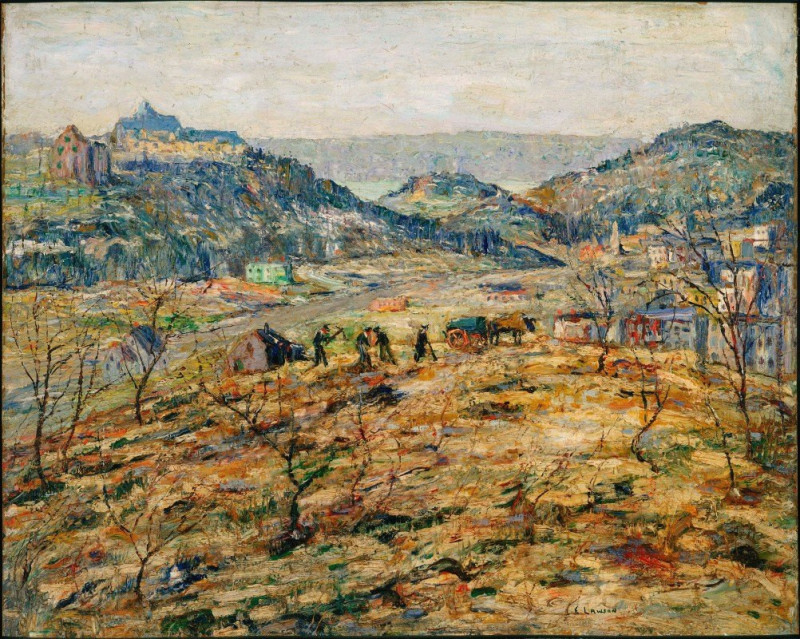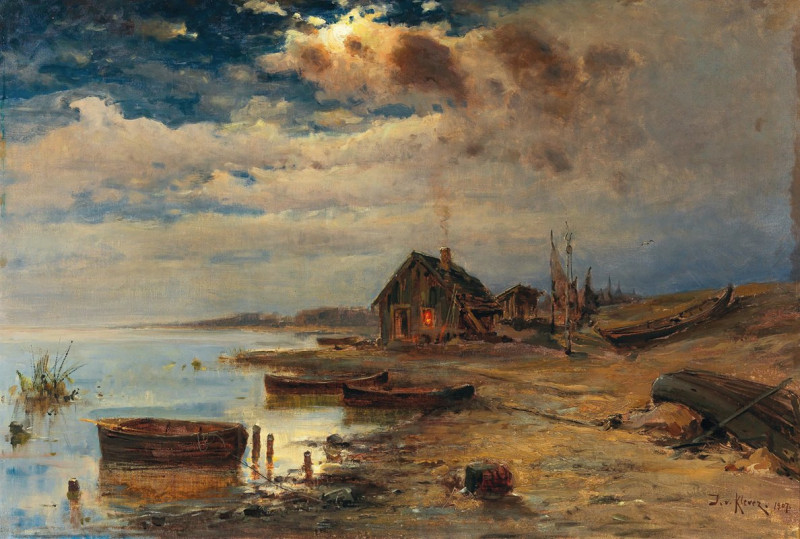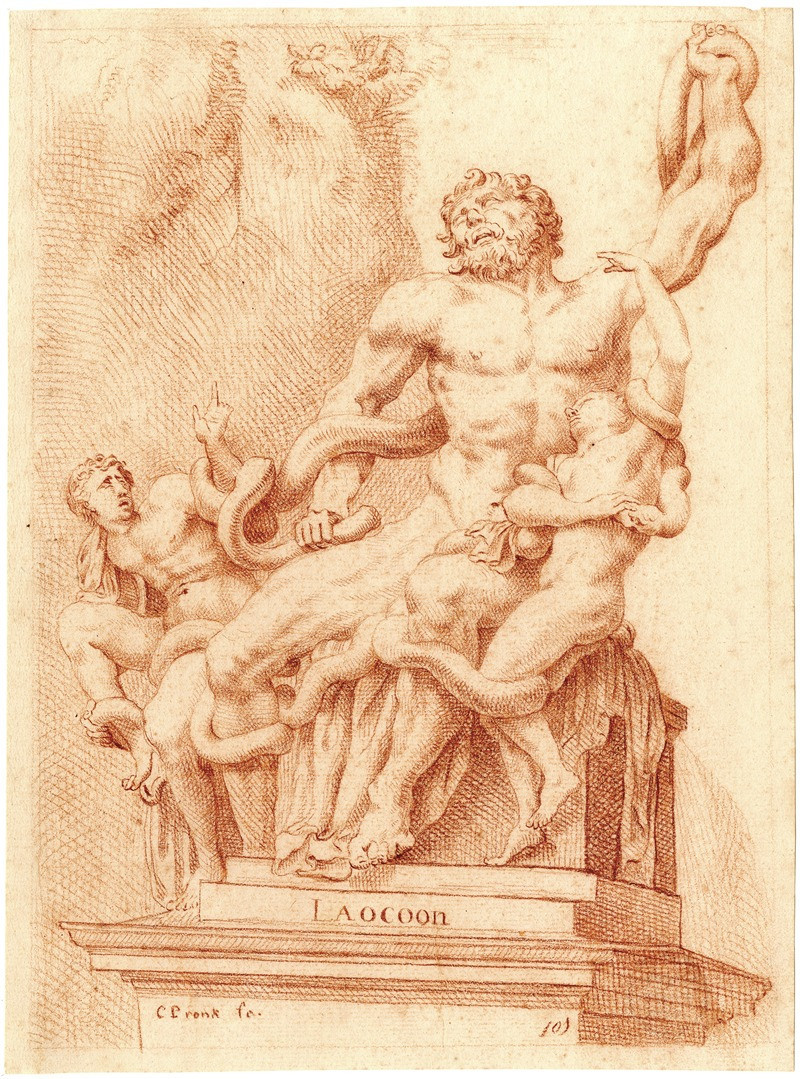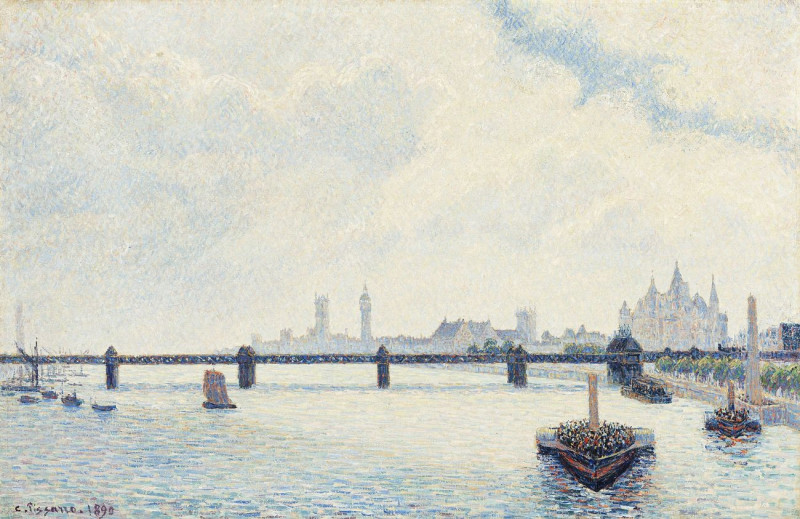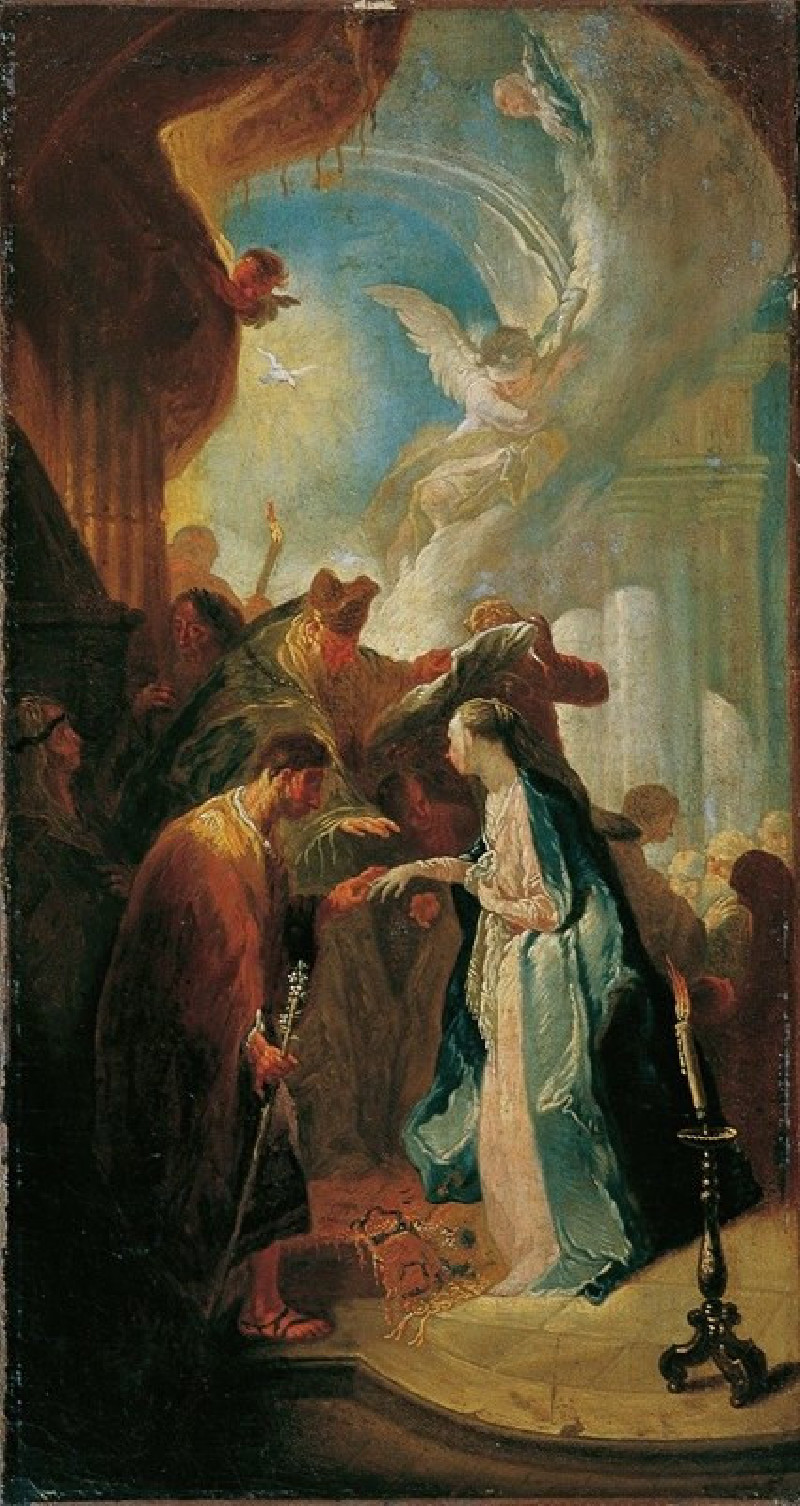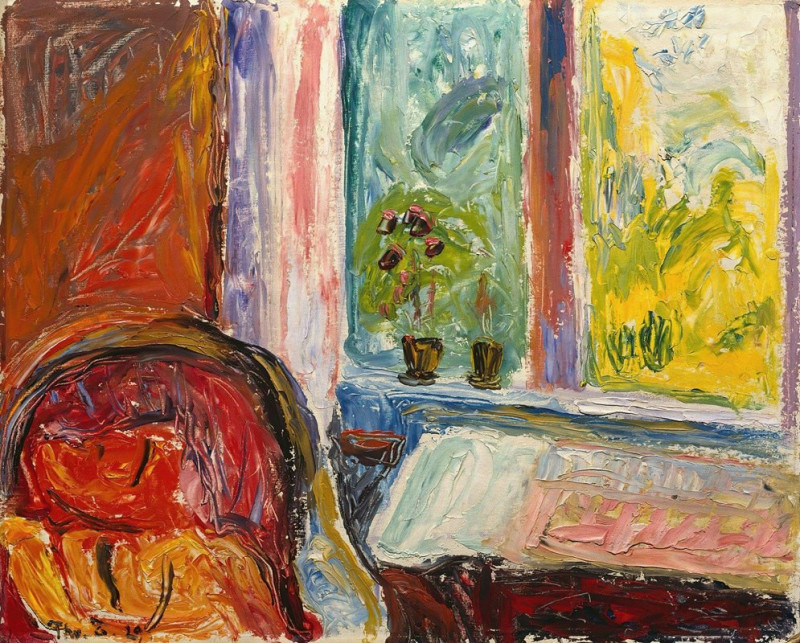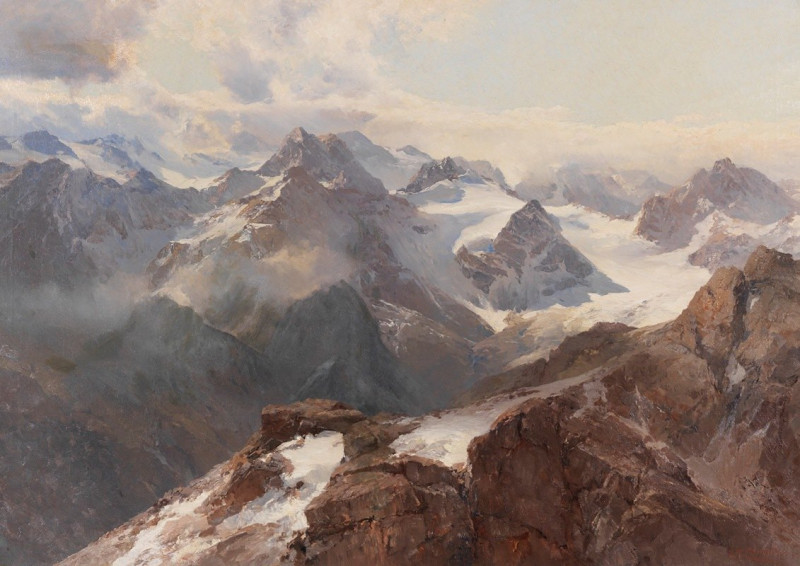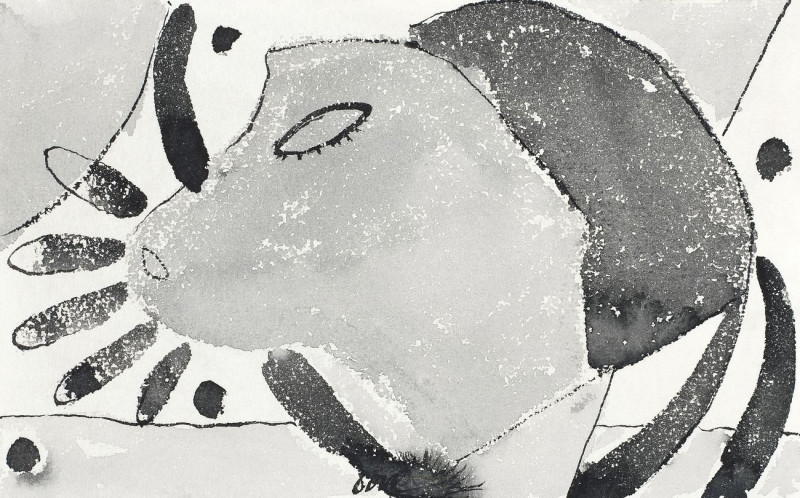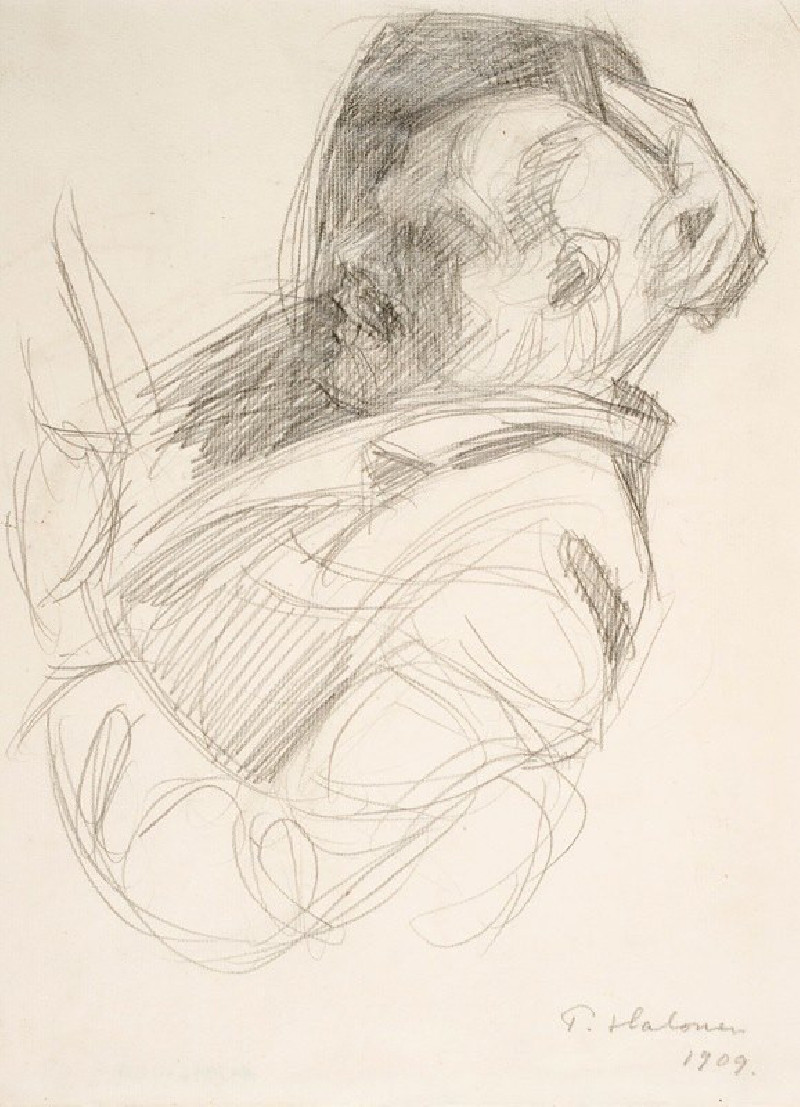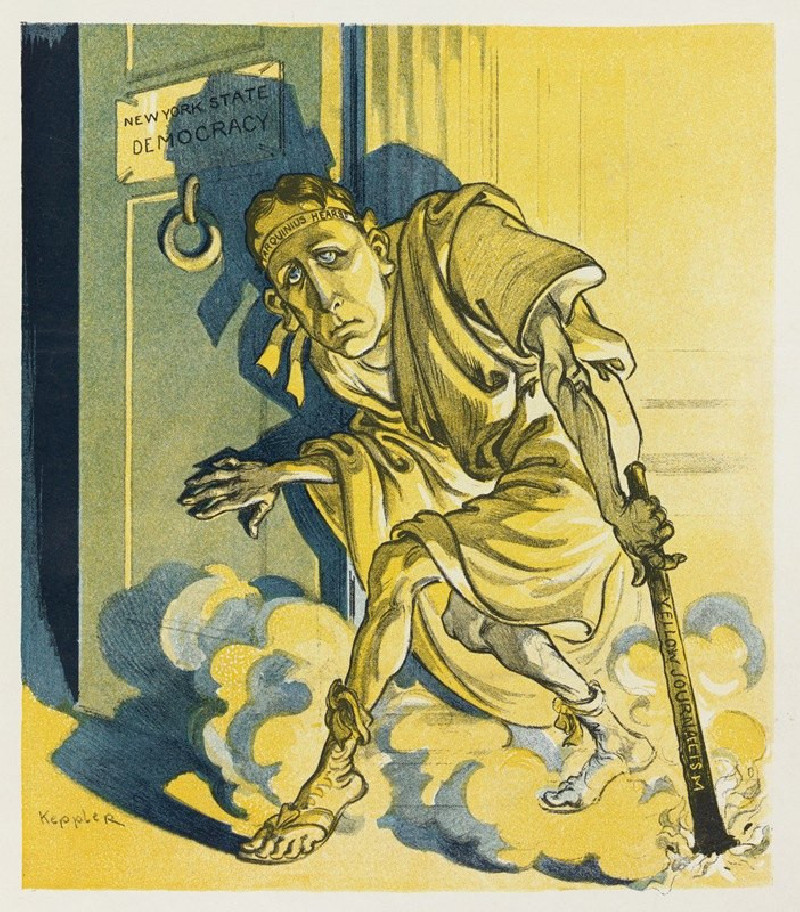Sunlight on the Harlem River (1919)
Technique: Giclée quality print
Recommended by our customers
More about this artwork
The vibrant artwork "Sunlight on the Harlem River" by American impressionist painter Ernest Lawson offers a delightful visual experience of the Harlem River area, captured with a dazzling array of colors and energetic brushwork. This painting takes viewers to a serene setting along the water’s edge, under a lively, cloud-specked sky.In the foreground, there's a gently bobbing rowboat, emphasizing a sense of quiet solitude. The river itself, depicted with a myriad of reflective brush strokes in greens, blues, and earth tones, leads the viewer’s eye toward the bustling life and subtle architecture on the distant shore.The opposite bank features undulating hills dotted with autumnal trees and quaint buildings. Lawson's application of color enriches the landscape, bringing out the rustic charm of small homes nestled among the rolling hills. The overall effect is both peaceful and picturesque, showcasing Lawson’s unique ability to blend natural tranquility with vivid scenic beauty.
Delivery
Returns
Ernest Lawson (March 22, 1873 – December 18, 1939) was a Canadian-American painter and exhibited his work at the Canadian Art Club and as a member of the American group The Eight, artists who formed a loose association in 1908 to protest the narrowness of taste and restrictive exhibition policies of the conservative, powerful National Academy of Design. Though Lawson was primarily a landscape painter, he also painted a small number of realistic urban scenes. His painting style is heavily influenced by the art of John Henry Twachtman, J. Alden Weir, and Alfred Sisley. Though considered a Canadian-American Impressionist, Lawson falls stylistically between Impressionism and realism.

